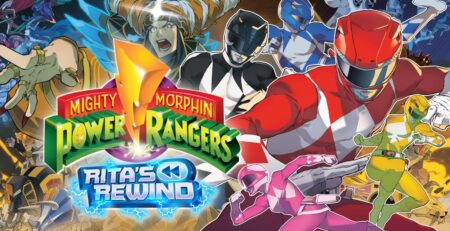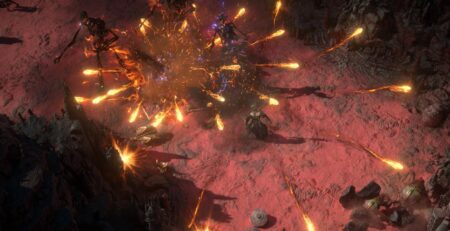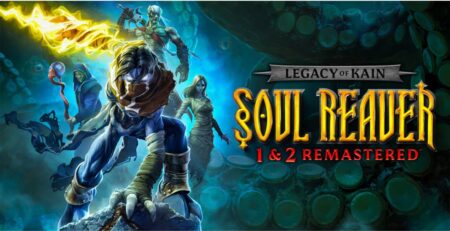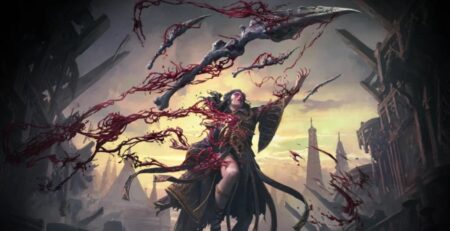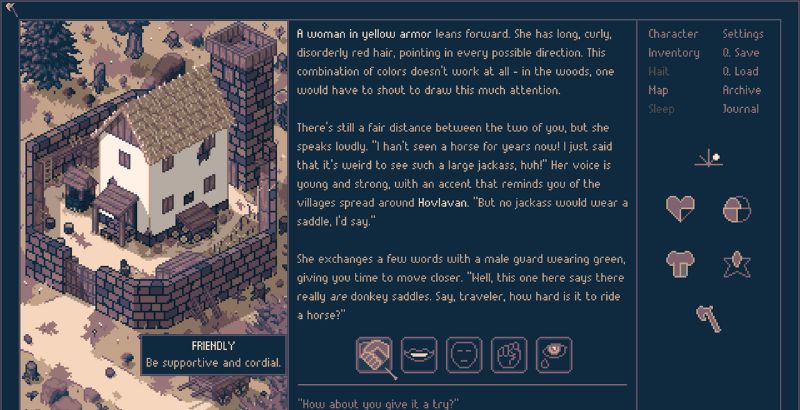
Roadwarden is a text-based RPG developed by Moral Anxiety Studio and published by Assemble Entertainment. While the game is most definitely focused on text descriptions for its environments and action, there is a slight visual element in the form of pixel art that gives a general overview of each area. There is a lot to love about Roadwarden, but if you don’t like the idea of having to read for the vast majority of your playtime, it definitely is not an RPG for you.
The game centers around the player character, a new Roadwarden. Roadwardens are vagabonds that wander certain regions of the world to help the local populace, deliver messages, gather information, and clear the roads for other travelers. The game’s plot is concerned with the player being sent to a peninsula with few human settlements to gather information for a merchants guild as well as searching for the previous Roadwarden that went missing, Asterion.
While the peninsula has some small communities, it is primarily overgrown, and many humans there are isolated and potentially dangerous. A group of necromancers uses forbidden arts to keep their community alive. Monsters lurk in the shadows that brush the edges of every road. The world of Roadwarden is a hazardous one that punishes those who are unprepared to face its hardships.
Since the game is almost entirely text-based most of the responsibility for creating this world falls on the game’s writing and narrative descriptions, similar to a visual novel. Thankfully, the writing carries this burden well for the most part. The descriptions do an excellent job of setting up scenes and highlighting particularly important or emotional scenes. However, players who can fill in some of the gaps in descriptions through exploring the dialogue options will get a lot more out of the world than those who want the game to do all the work for them.
Selecting text options is the only way players can interact with the world around them. Whether it be navigating dense webs of branching dialogues or surviving a monster attack, the player’s only choices are choosing from a list of options. This allows Roadwarden to offer players many more choices than RPGs that require more visuals to accompany them. It also allows the game’s social interactions to feel very natural and realistic.
Surviving in Roadwarden is not just a practice of choosing the right choice at the right time, however. The result of every decision and interaction with the world is the result of hidden calculus that takes into consideration the player’s various skills, statuses, and equipment. Players must build relationships with NPCs before they can get information out of them by frequently talking to them and choosing appropriate responses for their personalities.
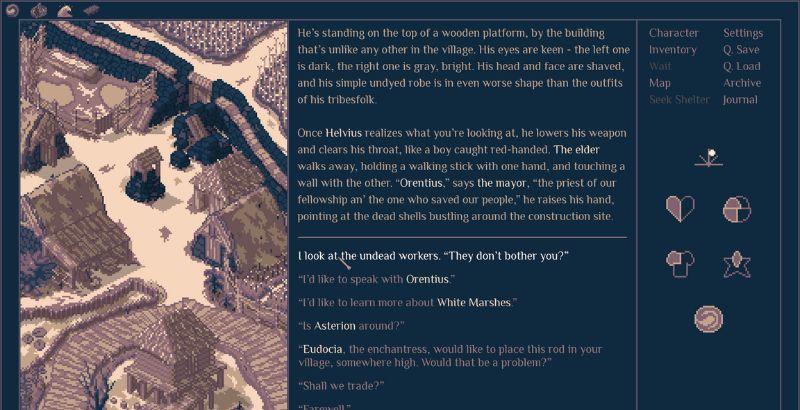
Players also have to manage the survival statuses of their character. This means keeping them fed, maintaining their gear so that it remains effective, and keeping them clean so that people are more likely to trust you. Managing these systems adds a nice foil of resource management to Roadwarden’s gameplay without ever feeling like they get in the way of the player’s exploration or adventures.
A player’s interactions with the world are also heavily influenced by how they customize their character early in the game. Players get to choose one of three classes that determines their starting gear and abilities, the secondary goal of their character in the peninsula, and the religion they follow. All of these decisions have massive impacts on how one’s playthrough goes, and they can feel overwhelming to pick at the start of the game when one doesn’t fully understand the consequences of each option.
The sheer depth of the options available is really fantastic to see, though. Not only does it make the prospect of a second playthrough more interesting, but it also makes one’s character feel like their own creation. It also makes your choices really matter, as not playing to your strengths or getting too bold can quickly spell disaster and derail your entire playthrough.
With how reliant on reading Roadwarden is, the game definitely has a slow pace. This is not a bad thing but may deter some players who don’t want to take the time to read through pages and pages of description and dialogue. Luckily, the game also boasts a standout soundtrack that helps appropriately set the tone of scenes, and it quickly wormed its way into my heart.
The only negatives of Raodwarden are likely consequences of its smaller development team and are easily forgiven. There are some spelling and grammatical mistakes in the writing that can be distracting at times, but for a title from a small Polish developer, it is impressively well polished. The game would also benefit significantly from a highlight system similar to the one in Pyre. There are so many terms and elements of the world to learn for players that haven’t tried the studio’s other games in the same setting that being able to hover over marked words for a short description would save players a lot of headaches while starting out.
Regardless of these couple issues, Roadwarden is a fascinating take on the RPG genre that has a lot to love. Its setting is deep and well fleshed out, and the interactions players have with it are impactful and fun to navigate. The stories it tells are often somber but handled in an undeniably human and engaging way. While anyone who doesn’t like reading will want to skip it, I cannot recommend it enough to players intrigued by the possibilities of a detailed, text-based RPG.
Roadwarden is available now on PC.
Roadwarden
-
Rating - 8/108/10
TL;DR
Roadwarden is a fascinating take on the RPG genre that has a lot to love. Its setting is deep and well fleshed out, and the interactions players have with it are impactful and fun to navigate. The stories it tells are often somber but handled in an undeniably human and engaging way. While anyone who doesn’t like reading will want to skip it, I cannot recommend it enough to players intrigued by the possibilities of a detailed, text-based RPG.

